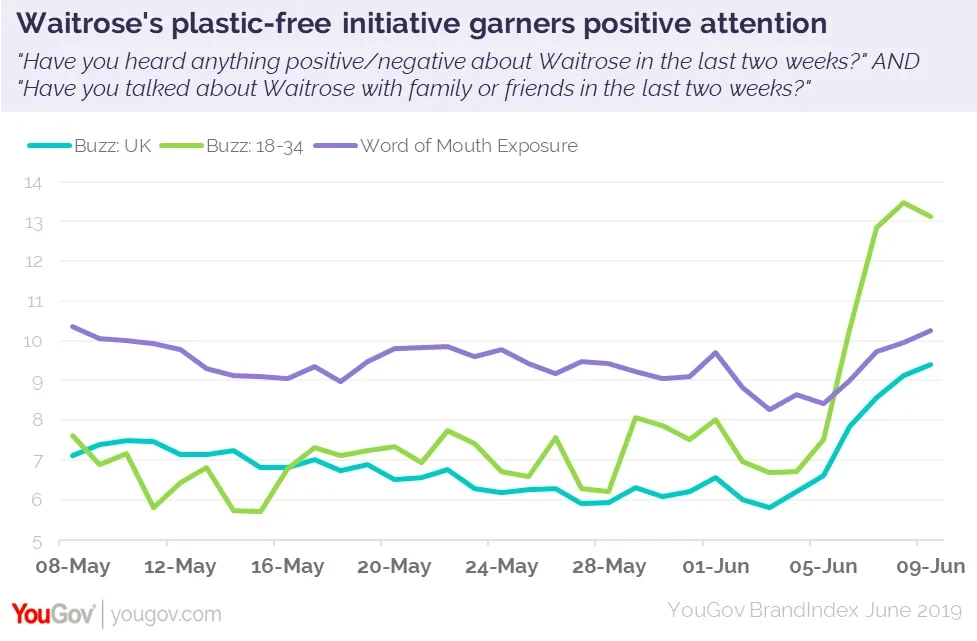Supermarket chain Waitrose has begun a trial to cut down on plastic packaging by removing it from flowers and plants, offering loose fruit and vegetables and allowing customers to refill their own containers with produce such as pasta, rice and cereals.
In a UK first, customers can also ‘borrow a box’ to take their produce home for £5, which is refundable once returned.
Large brands are increasingly changing their plastic policies in response to growing public sentiment on the issue. Recent YouGov research found that almost half of Britons (46%) feel guilty about the amount of plastic they use and the majority (82%) are actively trying to reduce the amount they throw away. Additionally, the most common items where Brits are trying to reduce single-use plastic consumption are fresh fruit and vegetables (81%).
A YouGov poll last week revealed that although most consumers would still prefer to buy individual packets of food (39%), over a third (34%) would prefer to use containers to buy and refill dry goods as now offered by Waitrose proving there is an interested market. This option is most popular with 18 to 24 year olds (42%).
Since the trial was announced last week, YouGov BrandIndex data shows a positive impact on Waitrose’s brand. Buzz scores (a net measure of whether consumers have heard anything positive or negative about the brand in the last fortnight) increased from +5.8 to +9.4, and by 6.8 points among the 18 to 34 age range (from +6.7 to +13.5).

It’s clear that brands which help consumers reduce their use of plastic provide something of real value to a public that has become very aware of the damage they cause. Shops that can provide more eco-friendly options could also become more popular with younger audiences.
Waitrose’s Word of Mouth Exposure score (whether someone has talked about the brand with friends and family in the last two weeks) increased from +8.3 to +10.2 since the trial began, suggesting that the initiative has resonated enough with consumers to be a topic of discussion.
This article previously appeared in City A.M.










